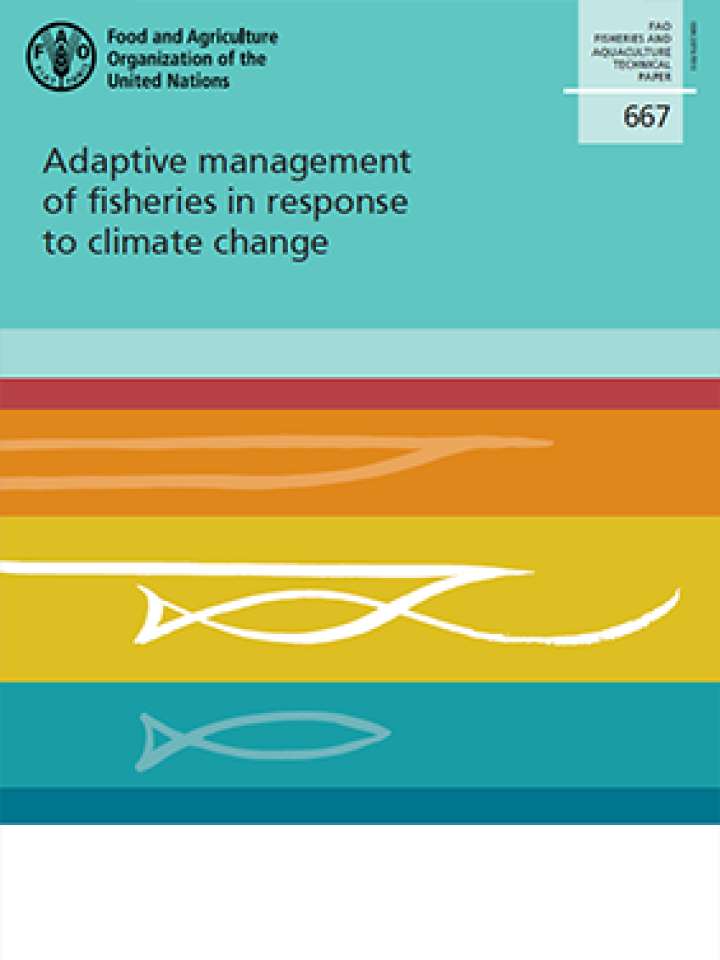Adaptive management of fisheries in response to climate change
This report aims to improve understanding of how flexibility can be introduced into the fisheries management cycle in order to foster adaptation to climate change. This work contributes to the overall scope of improving the resilience of fisheries, reducing their vulnerability to climate change, and enabling managers to respond in a timely manner to the projected changes in the dynamics of marine resources and ecosystems. The findings build on the conclusions of previous FAO publications that highlighted the lack of evaluations of adaptation success.
Thirteen case studies from different locations across the globe are analysed: Myanmar, the Northeast Atlantic, South Africa, Uruguay, south-eastern Australia, Belize, the Western and Central Pacific Ocean, the Philippines, the Mediterranean, Canada (east and west coasts) and Peru. They provide details on the challenges presented by climate-driven impacts to fisheries with a widely varied range of socio-ecological contexts, governance systems, data availability (data-poor to data-rich), geographical locations and scales, fishery types and species, and adaptation responses.
This information provides the basis for a framework that applies the good practice criteria to assist fishery practitioners in identifying suitable climate adaptation measures. The framework provides a means to track how the good practices are identified and assess the likely effectiveness and suitability of the adaptation measures.
Explore further
